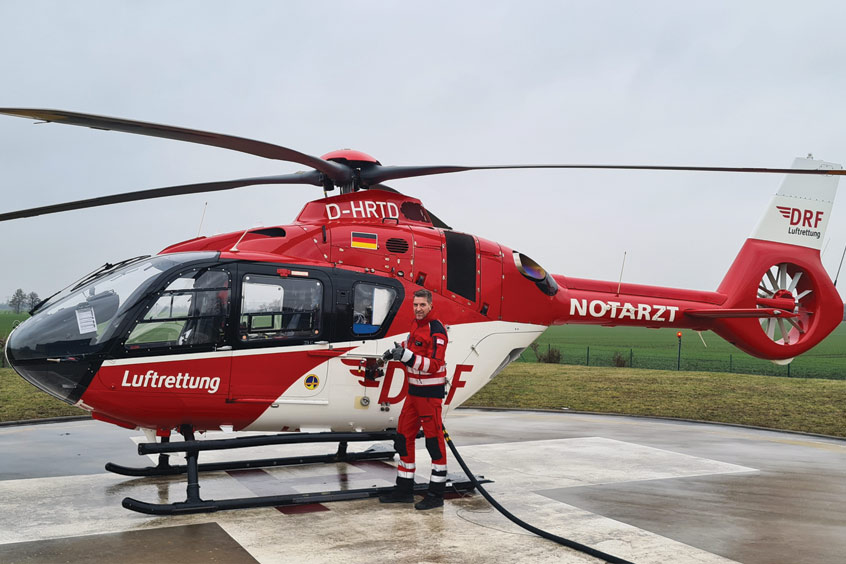Why visit ACE ’25?

Since 21 February, DRF Luftrettung’s red and white Magdeburg-based helicopter Christoph 36 has been using environmentally friendly SAF for its flights. In cooperation with engine manufacturer Safran Helicopter Engines and Airbus Helicopters, DRF Luftrettung is investigating the effects of SAF on the Airbus H135 helicopter type in a pilot project aimed at reducing CO2 emissions.
During a six-month test period, the partners will analyse the impact of SAF on the H135’s technology. DRF Luftrettung will regularly and thoroughly examine the engines and document technical data, which will then be evaluated by Safran and Airbus.
“As a non-profit organisation that has been saving lives for 50 years, we believe it is our responsibility to act sustainably,” says CEO Dr Krystian Pracz. “The careful use of the resources available to us is very important, so that all people can live a good and healthy life today and in the future. By testing bio-kerosene at our Magdeburg HEMS base, we are committed to reducing CO2 emissions in air rescue, an initial, albeit small, step towards climate-neutral flight in the long term.”
SAF is produced sustainably from non-fossil raw materials, waste fats or forest waste. In Magdeburg, a mixture of conventional Jet-A1 kerosene (65 per cent) and alternative fuel (35 per cent) is being used as a first step. EASA has recently certified and approved bio-kerosene in a blend of no more than 50 per cent with conventional kerosene for aviation.
“For our crews and the patients entrusted to us, nothing will change during the test phase in day-to-day operations. It goes without saying that we will continue to be reliable and of the usual high quality for the people in the Magdeburg region,” adds Dr Pracz.
Due to the time-consuming production of SAF, the alternative fuel is not yet widely available in Germany. Head of central purchasing and logistics Achim Vogel adds: “The costs are also many times higher than with conventional kerosene. Nevertheless, we are very happy that we have been able to start using it in Magdeburg. The project illustrates DRF Luftrettung’s sustainability efforts in purchasing and the supply chain.”